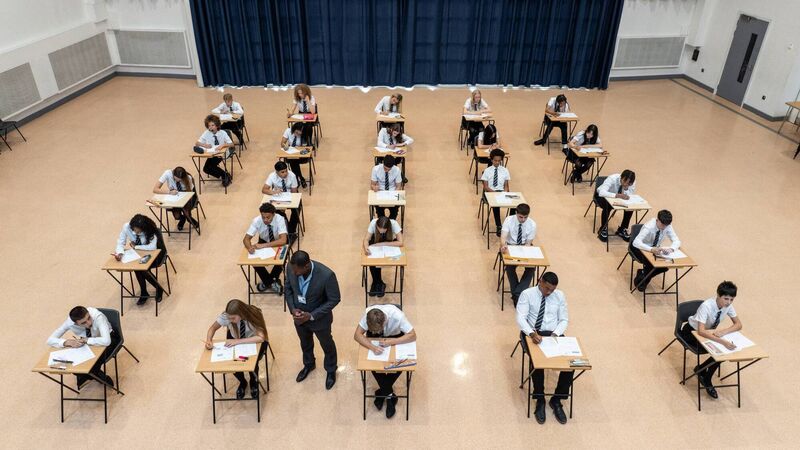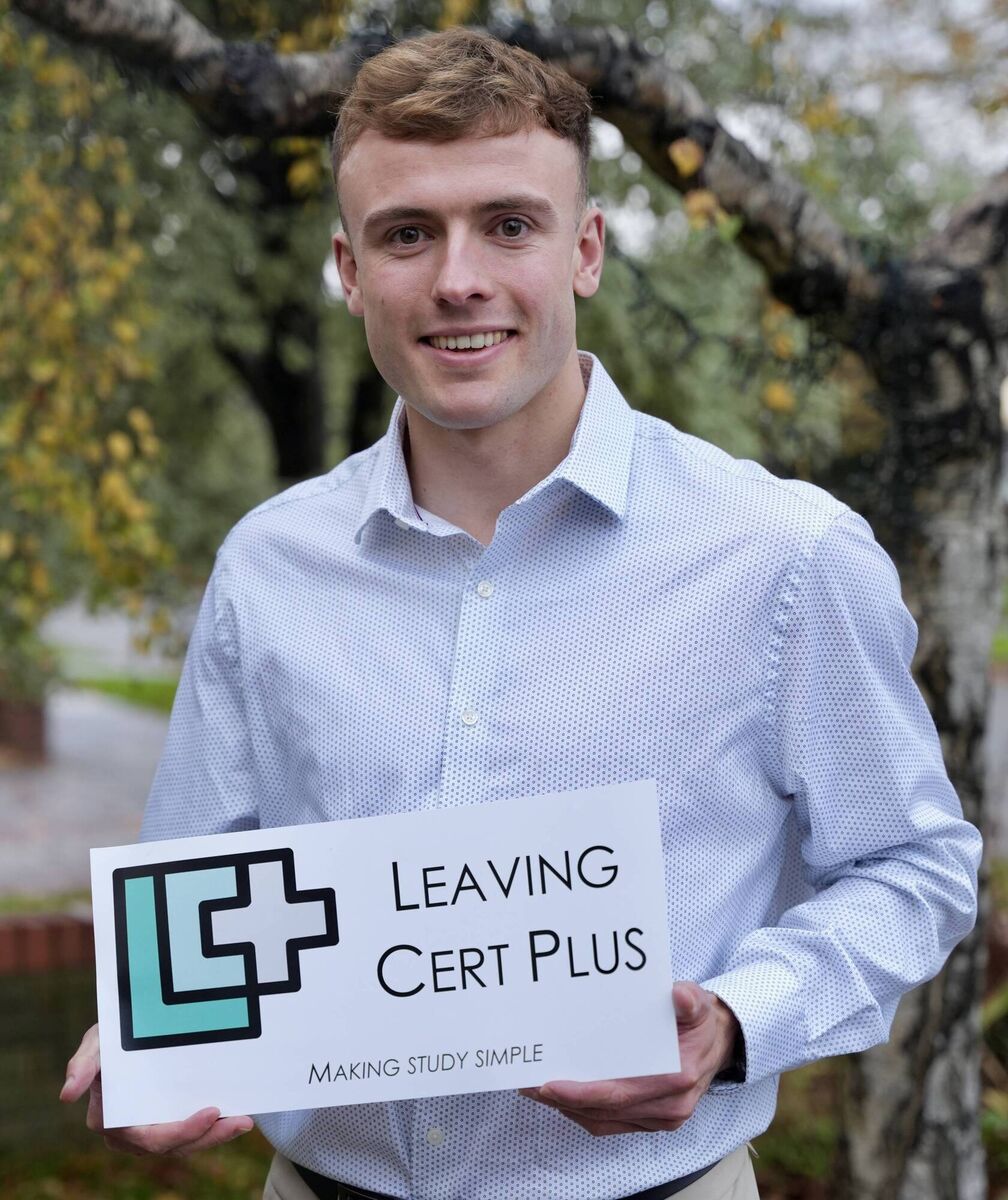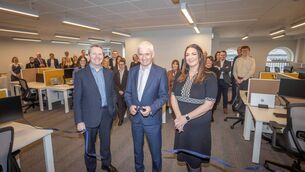The smarter way to study for the Leaving Cert

With almost 70,000 students set to take the exams come June 2026, now is the time to lay the groundwork for success.
While death and taxes are often credited as being the only certainties in life, Irish second level students would argue that Benjamin Franklin clearly never faced down the barrel of the annual Leaving Certificate exams.
Nor was he familiar with the certainty of the subsequent points race for third level, which looms over every student from day one of first year.
With almost 70,000 students set to take the exams come June 2026, now is the time to lay the groundwork for success with a study plan that takes wellbeing and mental health, as well as academic success, into account.
Establishing a routine that allows time for hobbies as well as encouraging short and long-term wins is essential for avoiding burnout, but within that, there needs to be the acknowledgment that confidence and motivation will ebb and flow as the school year continues.
“Start small,” says Paddy Walsh, co-founder and chief operations officer of Examrevision.ie, an education resource website built to help students maximise their potential.
“Set small goals and as you achieve them, acknowledge the wins and go from there. If you’re struggling to find motivation to study, start by saying you’ll study for two hours a week outside school and homework and layer on top of that week after week. You can’t go from zero to 100 in one week.
"Neither can you spend all your time just studying without burning out. Hobbies and extracurricular activities are essential for so many reasons, but they also help you focus as they have to fit studying around other commitments – so hobbies can actually prevent procrastination.”

The importance of finding balance between study and life has never been greater, agrees Aaron Keane, founder of education tech start-up Leaving Cert Plus.
Keane is himself a recent graduate who achieved 7 H1s and sat in the 99th percentile for the Health Professions Admission Test while also competing for Ireland in athletics, so he understands the benefits that come from maintaining hobbies outside school.
“Don’t stop the sport,” he says, before going on to explain the positive impact playing sports and maintaining extracurricular activities have on stress levels.
Keane has also found that hobbies such as sport encourage students to study in a more creative way as they have to master time management.
For Keane, the motivation to study came from knowing that nobody would do the work for him. “Take control and know that you have to do it for yourself,” he advises, going on to suggest looking at how and when you study.
“Alter your relationship to studying and turn it into something you want to do because you know it works for you. Don’t work against yourself, if you have to work hard to study then you’re doing it wrong.”
Finding study styles that work for the individual student is something both Keane and Ward recommend. “Not all students learn the same way and if you find a type of resource that works for you, double down on it,” recommends Ward.
The idea of active revision rather than rote learning is one that frequently arises among students and teachers alike. By testing your level of understanding as you move through each topic, either with past exam papers or flashcard-style questions, you will positively affect your mindset and deepen your knowledge of the subject.
Knowing that you can explain the concept of any topic improves confidence, while answering past exam papers helps settle nerves on exam day, as you already know what to expect.
Adopting the same approach in order to build confidence in subjects you may be weaker in is something Keane suggests. “Start with the basics of each subject first, and when you understand those, move on to exam questions to prove to yourself you really understand the topics,” he says.
Former teacher Ward agrees, saying that confidence comes from preparation and knowing that you’ve done the work required to succeed. “If you know that you’ve put in the work, practised past exam papers and done the best you can, then that’s where your confidence on exam day will come from.”
Google the phrase “Leaving Cert study tips” and you’ll be rewarded with over 18 million results – at last count – with all articles, videos and plans purporting to be the secret to exam success.
However, following ad hoc study plans and revision tips is not the way to go, say teachers and experts alike.
Instead, students should spend time getting familiar with past papers and marking schemes, which they can then use to develop a personalised study plan that aligns with their own strengths, weaknesses, and third-level aspirations.
“Studying shouldn’t be difficult,” says Aaron Keane, founder of education tech start-up Leaving Cert Plus, who believes mastering time management is key to success.
“Work to your strengths and find ways to integrate study into what you feel like doing that day. Build small daily habits that work around something you have to do every day, like using flash cards on the bus to school or while brushing your teeth. Work four or five of these into your daily routine and it will have an exceptional effect on the amount of study you’ll get done.”
This advice is echoed by Paddy Ward, co-founder and chief operating officer of education resource website Examrevision.ie, who says: “Plan your study schedule at the start of each week, knowing what you need to get done in the time you have available. I suggest planning only until Saturday which means that when things don’t go to plan you have Sunday to make up the hours you need.”
Ward also suggests students work to their individual strengths, especially in subjects they may be weaker in.
“Different resources work best for different learners and once you find what works for your learning style use more of it – maybe it’s videos, quizzes or traditional notes. And if you’re weaker in some subjects over others, look firstly if you need that subject to achieve your goals and if so, prioritise it each week in your study plan,” he says.
When it comes to actual revision, both Walsh and Keane agree that the best results come from dedicating more time to understanding the material rather than creating colour-coded study plans and perfect notes.
“There are resources already out there,” says Keane. “So at a maximum, a student should spend 20 per cent of their time creating notes and the rest of the time ensuring they understand the concepts of each subject. Once you understand the basics, spend time bridging the gap on how that applies to the exam questions by looking at past papers.”
“Using past papers is an essential of any study plan,” echoes Ward who goes on to say that students who use past papers to test themselves will become familiar with how to approach questions and gain an understanding on what the examiner is looking for.
However, one common mistake former teacher Ward sees among students is not answering questions under time constraints.
“Timing is so important and it’s a skill to master if you want to do well. Listen to your teacher when they give advice on how long to spend on each question and then practice answering past papers under time pressure.”
Our experts are clear: past papers, time management and working smarter, not harder, to achieve exam success come June.







